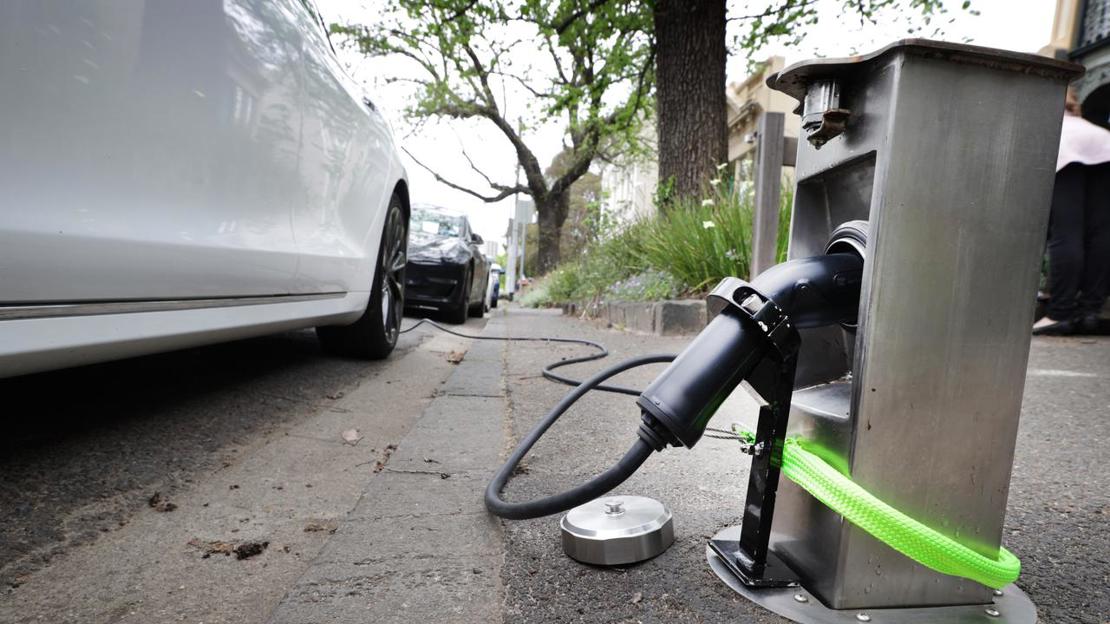Public and Private Kerbside EV Charging programs to continue at Port Phillip

Council will prioritise the installation of public EV chargers, including fast public chargers and pole-mounted chargers, in collaboration with leading providers. Over 50 potential sites are currently being assessed for feasibility, aiming to foster wide distribution of charging stations across the city.
At the May 1, 2024 Council meeting, support was provided for continued exploration and installation of on-street Public Utility Pole-Mounted and Kerbside EV Charger technology, using the following criteria to determine the locations for on-street EV chargers:
- Prioritise street locations outside Permit Zones unless the Permit Zone street has no access to off-street parking and there is high demand for EV chargers.
- Consider safety implications in determining the location of on-street EV chargers.
- Prioritise the spread of locations across the City of Port Phillip to provide access to EV charging across the municipality.
- Consider the outcome of community engagement with residents in the streets where on-street EV chargers are proposed to be installed.
Last night (June 5, 2024) Council decided to extend the private kerbside EV charger pilot for the next four years or until 100 private chargers have been installed. This program will:
- Permit private chargers with applications accepted in batches. New calls for applications will be made as existing batches are completed.
- Renew permits annually, with audits to ensure compliance with conditions. Permit renewals could be declined if the location of private EV chargers constrains Council works on Council roads and footpaths.
- Strongly encourage permit holders to hold appropriate insurance cover and make them aware of the risks and legal liability in the absence of appropriate cover.
- Require all current and future permit holders to register their chargers with Dial Before You Dig Australia and renew their registration as required.
- Exclude applications for properties in flood-prone areas until relevant authorities recommend approval. Existing chargers in flood-prone areas will be reviewed, and permits may not be renewed.
- Increase permit application fees from $132 to $500, with all other fees remaining the same, subject to CPI adjustments.
- Require a bond of $500, refunded upon completion of installation and reinstatement of footpaths as per Council standards. A separate bond of $500 will ensure the removal of the charger and reinstatement of the footpath. The bond value will be assessed and increased if required based on site conditions.
- The need for private EV chargers will be reviewed at the end of four years or upon the installation of 100 private EV chargers, whichever comes first.
The two-pronged approach set out wide-ranging benefits to the Community including:
- Broad Access to EV Charging: By focusing on both public and private EV chargers, the Council ensures that all residents have access to necessary charging facilities, promoting the widespread adoption of electric vehicles.
- Improved Air Quality: Enhanced EV infrastructure supports the transition from fossil fuel-powered vehicles to electric ones, reducing urban air pollution and improving public health.
- Economic Boost: Public EV charging stations can drive economic activity, as EV owners are likely to visit nearby businesses while their vehicles charge.
- Sustainability Commitment: This initiative aligns with the Act and Adapt Sustainable Environment Strategy 2023-28, demonstrating the Council's dedication to environmental sustainability and reducing greenhouse gas emissions.
Supporting Statement:
Mayor Heather Cunsolo stated, "Our commitment to enhancing EV charging infrastructure is helpful for a sustainable future. By prioritising both public and private EV chargers, we ensure residents and visitors can access the facilities needed for electric vehicles. This initiative aligns with our broader environmental goals and the liveability of our city."
Council will continue to work with providers to finalise site locations for public EV chargers. The focus will remain on both public and private EV charging models to ensure broad community access and support the transition to electric vehicles.